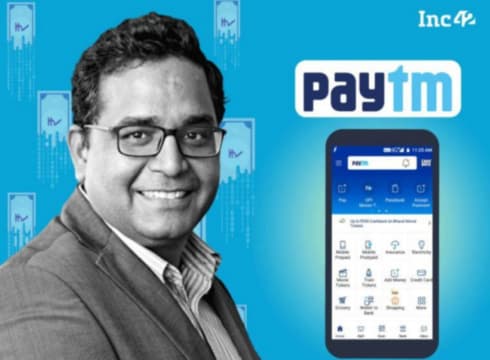The SEBI notices are reportedly related to Sharma’s alleged non-compliance with promoter classification norms
The probe was initiated based on inputs from the Reserve Bank of India (RBI), which also examined Paytm Payments Bank earlier this year
Paytm clarified in an exchange filing that that it was not a new development
Inc42 Daily Brief
Stay Ahead With Daily News & Analysis on India’s Tech & Startup Economy
Update | August 26, 5.12 PM
Following a media report that Paytm’s founder and a few board members have received show-cause notices from the SEBI, the fintech major clarified that it is not a new development.
“… we would like to inform you that this is not a new development, as the company had already made relevant disclosures on this matter in its financial results for the quarter and year ended March 31, 2024, as well as the quarter ended June 30, 2024. The company is in regular communication with the Securities Exchange Board of India (SEBI) and making necessary representations regarding this matter.”
“Accordingly, there is no impact on the financial results for previous quarters ended June 30, 2024, and March 31, 2024, respectively,” it said.
For context, Paytm, during its June quarter results this year, said that it had received a show cause notice from SEBI during the previous quarter (March quarter) in relation to 2.1 Cr ESOPs granted to MD and CEO Vijay Shekhar Sharma during the year ended March 31, 2022.
Original Story | August 26, 3:15 PM
The Securities and Exchange Board of India (SEBI) has reportedly issued show-cause notices to Paytm founder Vijay Shekhar Sharma and board members who served during the initial public offering of its parent entity One 97 Communications in November 2021.
Now, there are reportedly allegations of misrepresentation of facts against the company.
As per Moneycontrol’s report, the notices are related to Sharma’s alleged non-compliance with promoter classification norms on whether the Paytm boss should have been classified as a promoter rather than an employee while filing the IPO documents.
People aware of the matter informed the publication that the probe was initiated based on inputs from the Reserve Bank of India (RBI). It is pertinent to note that the central bank had also examined Paytm Payments Bank earlier this year and clamped down on several of its businesses.
Paytm did not respond to Inc42’s query on the recent developments about the show cause notices from the SEBI.
Meanwhile, the media report said that Sharma would have been ineligible for employee stock options (ESOPs) after the company’s listing on the bourses as SEBI regulations prohibit promoters from receiving ESOPs after IPO.
“SEBI is taking the view that Sharma should have been classified as a promoter, and it was also the fiduciary duty of board members of the company to verify the accuracy of the claims made by the founder and attest the same,” a person was quoted as saying.
Meanwhile, the person said that SEBI steps to also go after the directors of a company and trying to hold them responsible for a potential compliance lapse, in the past, is a rare case.
Also, it is worth noting that the matter has come into focus almost three years after Paytm went for the IPO and these alleged lapses were not pointed out earlier by bankers or statutory auditors.
In January last year, proxy advisory firm Institutional Investor Advisory Services (IiAS) raised concerns that Paytm could be bypassing laws to grant ESOPs to its founder and CEO Sharma. Back then, IiAS directly pointed out concerns on whether Sharma met the definition of a promoter under the SEBI norms, and if his direct or indirect cumulative shareholding in the fintech major was less than 10%.
After all, Sharma kept holding more shares in the company via the company’s family trust named VSS Holdings Trust
Just before filing its IPO document with SEBI, Sharma had transferred 5% of his shareholding to VSS Holdings Trust, bringing down his direct shareholding in the company to 9.6%.
The fintech major has been under severe regulatory turmoil in the recent past. While by mid-2023, Paytm was getting on track to achieve profitability, the company had to rejig its lending business due to RBI regulations on unsecured loans, which adversely impacted its Q4 FY24 numbers.
The situation became worse after RBI’s action on Paytm Payments Bank.
Meanwhile, it also received a show cause notice from SEBI concerning the 2.1 Cr ESOP granted to Sharma in the fiscal year ended March 2022. Most recently, it has been slapped with a fine of INR 47.12 Lakh for failing to pay stamp duties pertaining to the allotment of equity shares.
SEBI chairperson Madhabi Puri Buch said recently that the markets regulator will ensure adequate oversight to prevent a “Paytm-type contamination”.
{{#name}}{{name}}{{/name}}{{^name}}-{{/name}}
{{#description}}{{description}}...{{/description}}{{^description}}-{{/description}}
Note: We at Inc42 take our ethics very seriously. More information about it can be found here.


